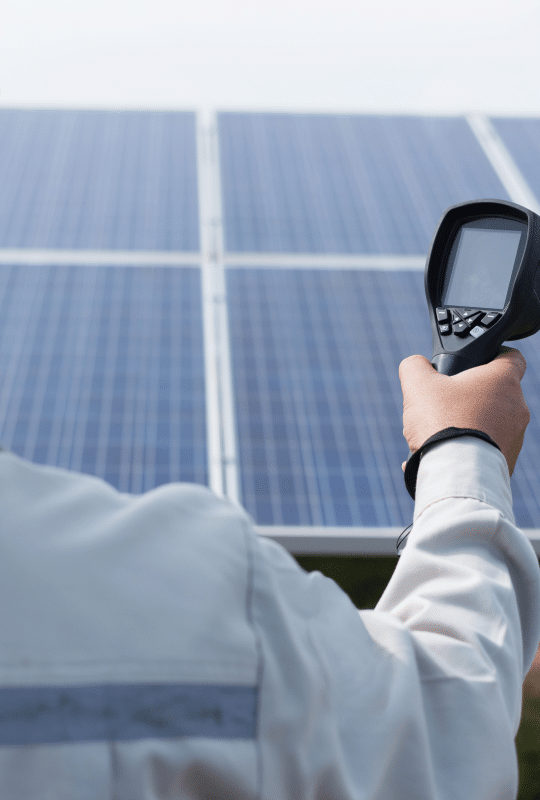AT HOME BUSINESS SYSTEMS
Off-grid solar systems are a great option for homeowners and businesses looking to generate their own electricity without being connected to the power grid. These systems offer several advantages over traditional grid-tied systems, such as independence from utility companies, cost savings, reliable backup power, and environmental friendliness. Off-grid systems can also be installed in remote locations and are easily scalable to meet changing energy needs. There are many benefits of using off-grid solar systems for homes and businesses.
According to Environment of Canada, the third sunniest city is Edmonton. Alberta has the highest number of sunny days in Canada with 312 average days of sunshine. Edmonton’s average is higher with 325 sunny days every year.
The sun’s rays are a primary form of renewable energy. To make the most of this resource, industries can utilize various solar technologies to convert the sun’s energy into heat for use in the power grid and other electrical distribution systems.
HOW SOLAR PANELS GENERATE POWER
There are two main types of solar energy technologies: solar thermal and solar photovoltaic. Photovoltaic technology, often abbreviated as PV, converts sunlight into electricity using semiconductors. This technology is commonly seen in the form of solar panels, which are the most widely used method of generating solar power. On the other hand, solar thermal technology utilizes heat to generate electricity.
To connect your solar panels to your home’s electrical system, an inverter must be installed between the panels and the main breaker. The inverter converts the direct current (DC) electricity produced by the panels into alternating current (AC) electricity, which is the type of electricity used in homes and businesses. The electricity generated by the panels can be used in your home or business, and any excess electricity is sent to the power grid.
The electricity that passes through this power meter will track the amount of energy that this power grid receives from your home. Then this measurement will then be relayed to the electricity company, and they will add a generation credit to your monthly bill as a token of appreciation for excess power generation
FACTORS TO CONSIDER
There are several factors that the industry must consider before installing the off-grid power system. The following are some factors that are needed to think twice about:
- The information about your electricity consumption in KWh allows your solar consultant to identify the maximum capacity of power generation of the panels. According to Alberta Utilities Commission, the annual power generation should not exceed 100% of your yearly consumption. This information can be easily found on your electricity bills for the last 12 months. So, it is necessary to keep these bills saved and make copies of them.
- Providing pictures of your home’s electrical panel, with the main breaker and brand name visible, allows for the assessment of any necessary electrical upgrades before the installation of the solar PV system. Additionally, it indicates which type of inverter would be most compatible with both the system and your home.
- The pitch of the roof is also necessary to consider, and it can be found on the building plans of the home. This will help determine if the roof is at the ideal angle to get the most benefits from the solar PV system, or if there are any specific adjustments to be made to the angle of the panels.
ADVANTAGES FOR HOMES & BUSINESSES
There are several advantages of using off-grid solar systems for homes and businesses, including:
- Off-grid systems are not connected to the power grid, which means they are not dependent on the utility company for electricity. This can be beneficial in areas where the power grid is unreliable or non-existent.
- Off-grid systems can be more cost-effective in the long run, as they do not require connection fees or monthly utility bills.
- Off-grid systems provide a reliable source of backup power in case of power outages.
- Off-grid solar systems produce clean, renewable energy and have a lower carbon footprint compared to traditional fossil fuel-based electricity.
- Off-grid systems can be installed almost anywhere, including remote locations and areas without access to the power grid.
- Off-grid systems can be easily expanded as energy needs change, making it easy to add more solar panels or batteries.
FUTURE
The off-grid solar system is a sustainable and cost-effective solution for powering homes and businesses. With the right planning and implementation, off-grid solar systems can offer a reliable and environmentally friendly alternative to traditional energy sources, helping to create a more sustainable future for all.



